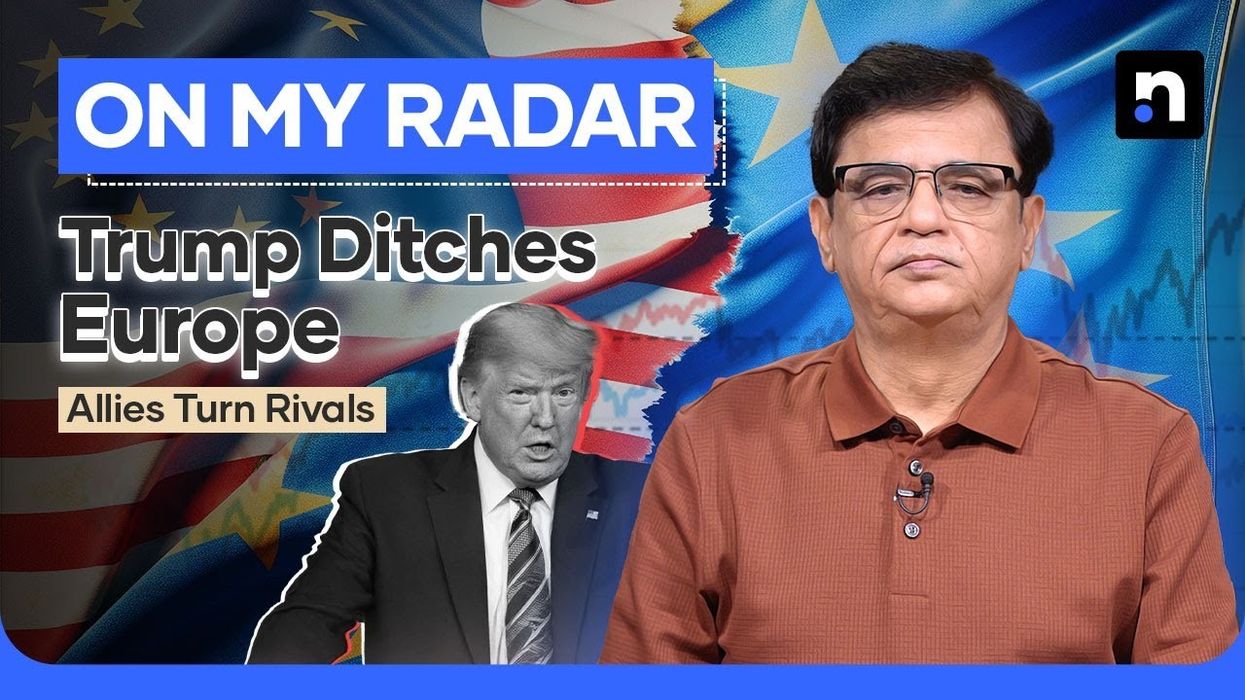Transatlantic ties under strain as Trump reshapes US-Europe relations
Kamran Khan highlights how Trump’s tariffs and NATO stance are unsettling European allies
News Desk
The News Desk provides timely and factual coverage of national and international events, with an emphasis on accuracy and clarity.
The decades-old transatlantic alliance between the United States and Europe is under growing strain as President Donald Trump takes an increasingly nationalist approach to foreign policy, sparking alarm across European capitals.
From trade disputes to NATO tensions and the war in Ukraine, Trump’s policies are forcing European leaders to reconsider their reliance on Washington. The latest concerns emerged after Trump and Russian President Vladimir Putin reportedly held direct talks, raising questions about U.S. commitments to European security.
NATO divisions deepen
Trump’s stance on NATO has been a major flashpoint. The president has repeatedly criticized European allies for failing to meet defense spending targets and recently suggested that the U.S. might not defend those who lag behind.
Vice President J.D. Vance reinforced that position at the Munich Security Conference, arguing that Europe’s biggest threats were internal, pointing to rising censorship and immigration issues rather than external adversaries like Russia or China.
The remarks shocked European officials, who had expected a strong U.S. commitment to Ukraine and NATO. German Economy Minister Robert Habeck called Vance’s speech a “grave mistake,” saying unity—not division—was the key to security.
Trade war looms
Tensions have also boiled over into trade policy. Trump announced a 25% tariff on steel and aluminum imports from Europe, prompting a swift reaction from the EU and Canada. European officials have threatened retaliatory tariffs on American goods, warning the Trump administration to reconsider its approach.
German Chancellor Olaf Scholz issued a stark warning, saying Europe has “the strength and means” to respond to U.S. trade restrictions.
Meanwhile, Trump’s foreign policy is further unsettling Europe. He dismissed Ukraine’s NATO bid as “unrealistic” and refused to involve European leaders in potential negotiations to end the war.
The White House has since asked European governments what role they are willing to play in providing security guarantees for Ukraine—a move seen as Washington offloading responsibilities.
Shifting alliances
Energy security is another growing concern. After cutting reliance on Russian gas following the Ukraine war, Europe turned to U.S. liquefied natural gas (LNG) as an alternative. But Trump’s “America First” approach has raised fears that Washington could scale back energy exports, leaving Europe to seek new suppliers in the Middle East and Africa.
In another move that unsettled European leaders, Trump suggested integrating Greenland and parts of Canada into the U.S., an idea met with swift backlash from European nations.
At the same time, European leaders have rejected U.S. proposals for relocating Gaza’s 2.2 million residents to other Arab countries, with French President Emmanuel Macron calling it a “dangerous” idea.
While U.S.-Europe cooperation remains in areas like intelligence-sharing and counterterrorism, the transatlantic relationship is at a crossroads. The deepening divide reflects not just policy disagreements, but also an ideological shift that is redefining global alliances.











Comments
See what people are discussing